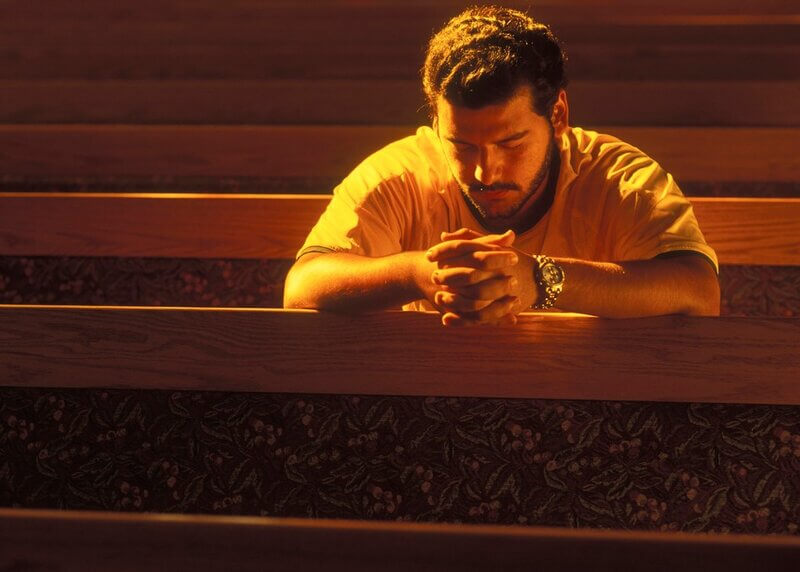Faith, Hope, and Love
In arguably one of the most beautiful passages in the Bible, 1 Corinthians chapter 13, the apostle Paul describes love and its supremacy. Closely connected to love are faith and hope. Paul concludes that these three virtues—faith, hope, and love—remain. What does Paul mean by this? And why are faith, hope, and love so important?
And now these three remain: faith, hope and love. But the greatest of these is love. (1 Corinthians 13:13)
Older versions of the Bible say “these three abide” instead of remain. Paraphrased translations say, “last forever.”
In his description, Paul states that love:
…. always protects, always trusts, always hopes, always perseveres. (1 Corinthians 13:7)
So, two very important components of love are trust (which is faith), and hope, the three forming a solid and indestructible triad of virtues.
Spiritual gifts without love
The context of this discussion starts in 1 Corinthians 12. Here, the apostle Paul explains that Christians can have many and various spiritual gifts, from speaking gifts such as teacher and prophet, to serving gifts such as helps and mercy. God gives these to believers in Christ to build up the Church. Paul’s point is that not all Christians possess the same spiritual gifts.
But in chapter 13 he asserts that all Christians do possess faith, hope, and love. Why is that? What makes these three virtues so important?
Faith, hope, and love define a relationship with God
Humans were made with the capacity to love. Faith and hope are the elements we give to those we love. So, faith, hope, and love are the essential elements of a good relationship. In other words, they are the means by which we connect to those we are close to and depend on.
These three exist between the physical and spiritual worlds, being neither physical nor intrinsically spiritual. Humans can trust, love, and hope in many different things or people. That being the case, people can easily misdirect their faith, hope, and love, and many have ruined their lives in doing so. But when directed toward God, these lead us into a love relationship with the Creator. And this is by far the most valuable treasure anyone can ever possess.
So, faith, hope, and love define a personal and reconciled relationship with God. They are the means by which the individual relates to and devotes themselves to him. All throughout the Bible we see these terms used in describing the believer’s relationship with God:
We always thank God, the Father of our Lord Jesus Christ, when we pray for you, because we have heard of your faith in Christ Jesus and of the love you have for all God’s people— the faith and love that spring from the hope stored up for you in heaven and about which you have already heard in the true message of the gospel that has come to you. (Colossians 1:3-6)
Paul was assured that the Colossian believers had entered God’s kingdom. Why? Because they possessed faith in Christ, love for others, and hope in the fulfillment of God’s promises. As Paul wrote to the Thessalonian believers:
We remember before our God and Father your work produced by faith, your labor prompted by love, and your endurance inspired by hope in our Lord Jesus Christ. (1 Thessalonians 1:3)
Faith, hope, and love are unique among virtues
Faith, hope, and love are in a class all their own—unique among all virtues. Notice that Paul doesn’t describe them as spiritual gifts, or as gifts at all. They are not “things” that can be gifted, sold, traded, seen, or measured.
And they are the sole property of the person who has them. So, they can’t be transferred from one person to another as a commodity. Although God’s love for us is certainly a great gift to us, my love for God can’t directly transfer to someone else. It is mine alone. And love is not forced or prescheduled, it’s freely given in the present.
Nor can I give my faith in Christ to someone else. And my hope in the fulfillment of God’s promises doesn’t work for anyone else but for me. We can inspire and lead others to have faith, to love the Lord, to hope in his promises, but our relationship with God can’t be credited or mechanically transferred to someone else.
And because they are the sole possession of the person who has them, they are initiated by the believer’s will. But they are not an action or “work” that requires effort. They are the silent allegiance and devotion from a believer to God.
The unity of faith, hope, and love
Although we may see faith, hope, and love as separate, they are really intricately linked to each other. In a relationship, you really can’t have one without the other. A love relationship is a faith relationship, because if you love someone, you also trust them. You place your hope in them as well: when you’re physically apart, their absence creates a longing. Your hope confirms your love for them and gives you endurance and patience until you meet again. And so it is with those who love God and put their hope in him.
So, faith, hope and love are virtues that all Christians possess. And they are united in that they all go together. And as long as love endures, faith and hope will endure. So, as Paul wrote, all three will remain—far after the spiritual gifts have ended.
Faith
Faith is where we begin with God. By definition, all believers possess faith in God. They live in time and space in the physical world but believe in an unseen God, experiencing him through the presence of his Spirit. They can’t see him, but they believe he exists and rewards their search for him (Hebrews 11:6), loving and serving him by faith:
Though you have not seen him, you love him; and even though you do not see him now, you believe in him and are filled with an inexpressible and glorious joy, for you are receiving the end result of your faith, the salvation of your souls. (1 Peter 1:8-9)
Faith is not an effort or an act, it’s the quiet reliance we put in the One who is reliable and capable. It’s trusting the One who is trustworthy, just as children trust their parents. So, faith is a choice which reflects what or who we love. Faith is not action in itself but produces and inspires actions. And our actions in turn reflect who we trust and love.
We now walk by trust in the unseen God. But when we see him face to face, our trust will be deeper still, it will be a completed faith. Faith will never cease; we will never stop trusting the Lord:
Trust in the Lord forever, for the Lord, the Lord himself, is the Rock eternal. (Isaiah 26:4)
Hope
People put their hope in many different things. But there’s only one hope that endures: the promise of salvation for those who love God, who believe in his Son Jesus Christ. Believers in Christ now have many blessings. But they haven’t yet received all that God has promised. And so, they live by faith in the expectation that his promises will be fulfilled. This is the Christian’s hope.
Israel, put your hope in the Lord, for with the Lord is unfailing love and with him is full redemption. (Psalm 130:7)
May the God of hope fill you with all joy and peace as you trust in him, so that you may overflow with hope by the power of the Holy Spirit. (Romans 15:13)
We have hope because we haven’t yet received our full inheritance. Yet the One who has promised it is trustworthy. And our hope in Christ produces endurance, as we wait for the fulfillment of God’s promises. Speaking of the believer’s hope in God’s promise to redeem and transform us into Christ’s image, Paul wrote:
The Spirit himself testifies with our spirit that we are God’s children. Now if we are children, then we are heirs—heirs of God and co-heirs with Christ, if indeed we share in his sufferings in order that we may also share in his glory. I consider that our present sufferings are not worth comparing with the glory that will be revealed in us. (Romans 8:16-18)
So, as Paul reminds us: the completion of our salvation is in the future:
For in this hope we were saved. But hope that is seen is no hope at all. Who hopes for what they already have? But if we hope for what we do not yet have, we wait for it patiently. (Romans 8:24-25)
When we see Christ face to face, we will be changed into his likeness, and we will have received what God promised us. We will become mature sons and daughters of God and thus receive our full inheritance.
Will hope disappear when Christ comes? No, our expectation of receiving from him will never cease. All we have is because we are in him. And all we need we receive from him. So, we will continue to hope in our God. Because God is unfathomable, it will take an eternity to know him fully.
Love
God’s love for us is the source of our love for him and for others. We love only because he first loved us (1 John 4:19). And he proved his love for us in that while we were still sinners, Christ died for us. So, his love is the basis for our love, as well as our faith and hope.
Without love our lives are empty and devoid of meaning. We will always need love, even after our earthly lives end. And love gives meaning and blessing to all the spiritual gifts:
If I speak in the tongues of men or of angels, but do not have love, I am only a resounding gong or a clanging cymbal. If I have the gift of prophecy and can fathom all mysteries and all knowledge, and if I have a faith that can move mountains, but do not have love, I am nothing. If I give all I possess to the poor and give over my body to hardship that I may boast, but do not have love, I gain nothing. (1 Corinthians 13:1-3)
Without love the spiritual gifts are worthless and are like noisy and annoying clanging cymbals. The gifts are useful for a time, but love will endure throughout all time and when time no longer exists.
Love never fails. But where there are prophecies, they will cease; where there are tongues, they will be stilled; where there is knowledge, it will pass away. For we know in part and we prophesy in part, but when completeness comes, what is in part disappears. When I was a child, I talked like a child, I thought like a child, I reasoned like a child. When I became a man, I put the ways of childhood behind me. For now we see only a reflection as in a mirror; then we shall see face to face. Now I know in part; then I shall know fully, even as I am fully known. (1 Corinthians 13:8-12)
In this present world we walk and live by faith because we only see glimpses of our eternal state in Christ. And we hope in Christ because completeness and maturity in Christ have not come yet. But when Christ appears, we will know him fully, face to face, and be changed into his likeness.
Why is love the greatest?
Love is the greatest of the three because God is love. Love is intrinsic to his nature. And all love originates from him. Love will always remain, because God is love and God is eternal.
God is love, but God is not faith or hope. He doesn’t need faith or hope since he’s omniscient. They aren’t the means by which God communicates with us— he does this by his Word and through his promises. Faith and hope are the means by which dependent beings connect to God, rely on him, and love him. God doesn’t depend on us, so he doesn’t need us in the way we need him. But we need him and are completely dependent on him.
And loving God is the greatest command:
Love the Lord your God with all your heart and with all your soul and with all your strength. (Deuteronomy 6:5)
Notice the command is to love the Lord with all your heart, soul and strength. The love has to come from you and no one else. And because it’s the greatest command, it’s our highest obligation in life: to love God with all our heart, soul, and strength. We love him here and now, and we will love him into the future.
God gives us the capacity for faith and for hope. But in this life our faith can fail, and our hope can waiver or grow dim. Nevertheless, though everything else fails, God’s love for us will never fail nor will it ever cease.
Love truly lasts forever. For those who love God, their love will abide forever. And connected to love are faith and hope, so if love endures, then so do faith and hope. When completeness comes, then faith and hope will remain, but overshadowed by God’s love.
God’s promises to believers
Faith, hope, and love connect the believer to God. They may wane at times, but they are always there and remain through times of blessing and difficulty. If you are a believer in Christ, be assured that because of God’s sure promises, he will never fail you. He will never forsake you.
If you have yet to trust Christ as your Savior, be assured that when you do, you will possess the most valuable treasure you will ever have, a love relationship with the eternal God. But each person must have their own faith, their own hope, and their own love for God. You can’t rely on anyone else’s—you must make that decision yourself. Decide today to love the Lord, that he may be not only the Lord and Savior, but your Lord and Savior.
Christ in Scripture is listed on Feedspot Top 200 Christian Blogs.






